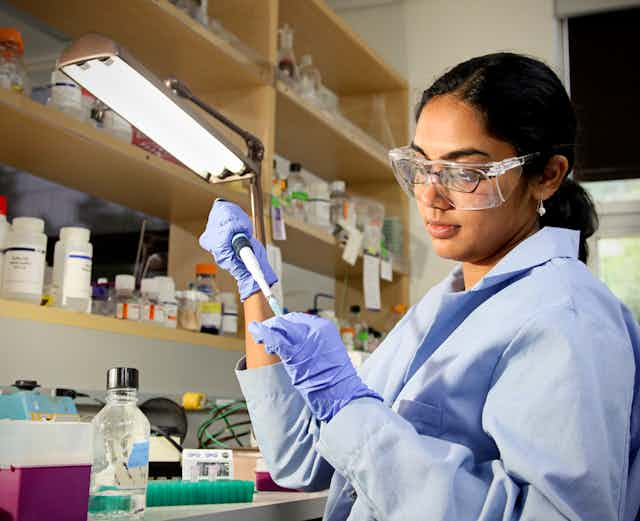Whether sequences of genetic material can be patented has been a matter of heated debate for the past decade or more.
In many countries, patents have been granted for isolated gene sequences, methods of isolating sequences, methods of using sequences for diagnosing genetic diseases, and a whole range of other gene-related products and methods.
Many thought this debate was drawing to a close earlier this year (June 2013), when the US Supreme Court handed down a pivotal decision in a test case on the patentability of genes associated with hereditary forms of breast cancer.
The decision, that the BRCA1 and BRCA2 genes were not patentable subject matter, was greeted with widespread enthusiasm. Mutations of these genes considerably increase the risk of developing breast cancer.
The US decision signalled the end of fears that patents could impede genetic research as well as the provision of diagnostic genetic tests. Or so many thought.
But the patent landscape around genetic testing for the BRCA genes is, in fact, far more complex than this.
Myriad Genetics, the company that owns the BRCA patents, was hardly going to sit by and watch its competitors move into the lucrative diagnostic testing space it had jealously guarded for so long. So it’s fighting on.
More than one patent
Most companies protect their core technologies with a set of patents, in case something goes wrong with one or more of them. Like the majority of patent owners, Myriad has various other patents in its armoury. It’s a smart business strategy.
Following the Supreme Court decision, Ambry Genetics and Gene-by-Gene, two of Myriad’s closest competitors, provocatively announced that they would start offering BRCA diagnostic genetic tests.
In response, in July this year, Myriad instituted proceedings in the US District Court of New York alleging that both Ambry Genetics and Gene-by-Gene were infringing a number of its remaining patents.
Since then, various applications have been put to the court as part of the usual litigation process.
In particular, Ambry Genetics has counterclaimed that Myriad’s remaining patents are invalid and that the way it has acted amounts to patent misuse, as well as other matters.
But this has not deterred Myriad, which has also been actively pursuing its case for patent infringement. It has already applied for a preliminary injunction requiring other companies to cease offering BRCA and other tests until the case has been decided.
And Counsyl Genetics, another of Myriad’s competitors has independently applied to the US District Court for the Northern District of California for a declaration that it is not infringing any of Myriad’s remaining patents.
Method and sequence
Myriad’s remaining patents cover a range of claims for methods of diagnosis, and claims for DNA sequences.
The Supreme Court’s decision invalidating some of Myriad’s sequence claims probably make the validity of its other, similar claims doubtful.
The method claims are more problematic. In simple terms, a claim relating to a method of diagnosis might describe a method for screening for a gene mutation by comparing the gene sequence taken from a tissue sample with a reference sequence.
The Supreme Court did not get the opportunity to rule on Myriad’s method claims, but the lower courts dealing with that litigation were less than impressed with some of what the company claimed.
The Supreme Court has also indicated in another case (Prometheus Labs. Inc. v Mayo Collaborative Services) that it takes a dim view of claims that merely recite a method for comparing reference data (data that has been identified by prior experimentation and is disclosed in the patent) with patient data.
In the above case, the court decided that a method of measuring metabolites (what makes a drug able to be absorbed by the body) of a drug and comparing them with reference data to work out the correct dosage was not patentable.
It’s difficult to predict the direction that the court might take in the lawsuit between Myriad, Ambry and Gene-by-Gene in advance. But whatever happens in the District Court, more likely than not the case will be heading for protracted appeals to higher courts; don’t expect a clear outcome in the next year or more.
Broader questions about the lessons to be learned from the Myriad cases for diagnostic genetic testing remain unanswered. But the optimism resulting from the Supreme Court decision in June should not turn to pessimism quite yet.
Australian scene
The patentability of genes sequences also remains unresolved in Australia. The Full Court of the Federal Court of Australia recently heard an appeal from the decision of Justice John Nicholas in February this year relating to Myriad’s local BRCA patent.
Justice Nicholas decided that the gene sequence in question was patentable subject matter, because it was an “artificially created state of affairs”. The Full Court decision is imminent.
Meanwhile, a survey of Australian diagnostic laboratories offering BRCA and other genetic tests completed in late 2012 indicate that few Australian laboratories are facing demands from gene patent owners either to stop offering tests or to pay licence fees for the provision of tests.
In contrast, owners of US patents appear more willing to enforce their patents against diagnostic laboratories.
It seems that there’s currently more leniency in granting gene patents in Australia than in the United States, but that diagnostic testing laboratories probably have less to fear from patents holders.

